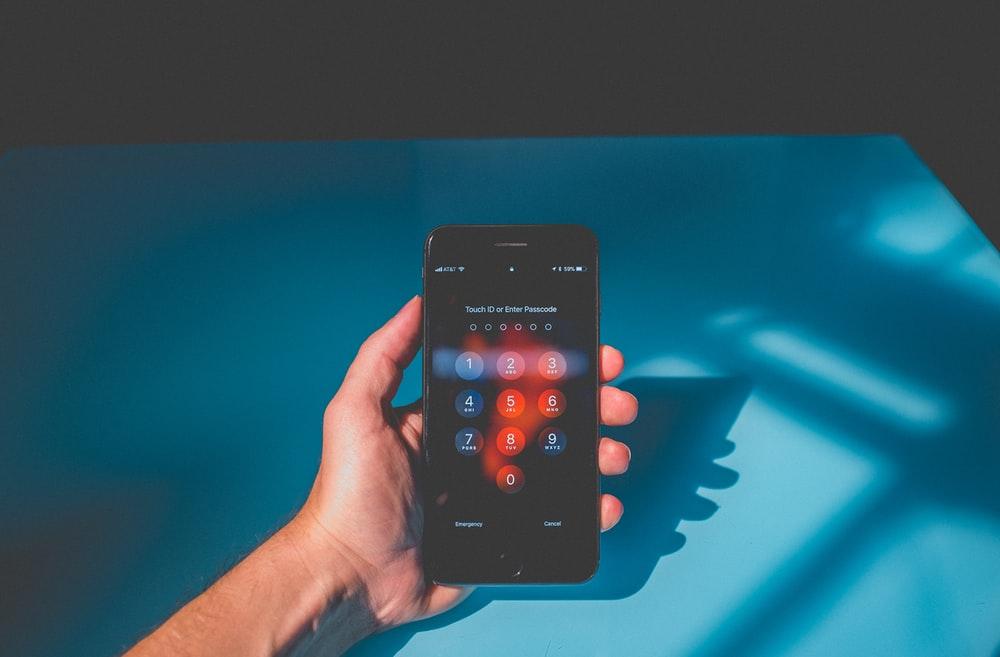Cybersecurity
5 Cyber Security Trends You Can’t Ignore in 2021
Because few people foresaw the dramatic developments of the past year, cybersecurity experts clarified several cybersecurity trends that persisted or even increased amid global uncertainty.

Because few people foresaw the dramatic developments of the past year, cybersecurity experts clarified several cybersecurity trends that persisted or even increased amid global uncertainty.
This story will dive into several cybersecurity trends that pose a considerable potential risk in 2021 and provide practical advice to help entities minimize overall risks.
For most tech corporations, the first quarter of 2021 is just another cybersecurity crossroad. Currently, they’re shifting staff back into the office and managing the risks and the outcomes of WFH policies at the same time.
For cybercriminals, on the other hand, this opens a door.
We’ve seen how the proliferation of remote work has resulted in undetected security susceptibilities, which will impact the corporate world in the months ahead. But it’s not all bad news.
This year should also bring new automation opportunities to help companies in the ongoing struggle to more with less. But before that, let’s explain how these cybersecurity threats impact individuals and companies alike and what you can do to be more digitally secure.
Table of Contents
1. Lockdown Defines the New Business Style
As companies have shifted their employees to flexible models or full-time work from home models, so have the attack areas. Cybercriminals take advantage of current events and shifting circumstances to exploit those who are the most susceptible.
There is a big chance you have already come across a text message or email scam linked to the COVID-19 pandemic. That, or countless charity agencies that claim to be supporting front-line employees. Or even worse, those who pretend to sell essentials like protective masks, hand sanitisers, or food.
The concerning truth is that cybercrime as a whole has peaked at 600 per cent since the outburst of the global pandemic.
There’s a ruling uncertainty that doesn’t seem to end. As we continue to wait for the future of the pandemic and restrictions, the only certain thing is cybercrime.
Restrictions have permanently altered the business space, but shockingly, productivity has increased by 47 per cent YOY despite WFH policies. That, however, is another reason for the corporate world to discuss security needs.

2. Ransomware – All-Time High
Expect to see the ongoing growth of ransomware and monetization of exploits throughout the year. As increasingly more businesses were forced to apply WFH policies for all employees, many loosened their infrastructure and created security gaps or invitations for hackers to exploit what they wish. This famous malware made history last year, contributing to the first reported death linked to a cyber-attack.
Industry trends don’t look that peaceful either. In a 582 information security experts survey, 50 per cent say they don’t believe their company is prepared to battle ransomware attacks.
The Healthcare industry is one of the hardest hit and most susceptible industries because:
- PHI or Personal Health Information can sell hundreds of dollars per record, and it’s typically sold again to cybercriminals.
- Their security systems are mostly driven by compliance and not by proper security measures.
3. Supply Chains – Successful But at What Cost
Solar Wind’s case leads by example, but not in the good sense. Their recent security failure brought global attention to companies’ need to make cybersecurity a top priority for the years that follow.
In this case, an advanced supply chain attack impacted more than 18,000 clients, including fortune 500 businesses and government agencies.
Reports show that 50 per cent of cyber attacks today target the networks and those linked to the supply chain platforms.
Supply chain attacks on open-source software also surged by 430%, according to a Sonatype report. With this deeply rooted in your head and systems, it doesn’t matter how steady your cybersecurity measures are if your vendors have been compromised.
Once hackers have entered your network, they will try to move laterally to reach their privileges and gain control of your system. Or, as in most cases, they will hibernate for months to years at a time, collecting and exfiltrating data.
To eliminate or at least reduce such threats, most WFH employees or shoppers rely on obfuscated servers to bypass strict censorship and remain private while using retail platforms.

4. MFA Use Will Escalate
Given the peaking cases of cybersecurity threats, it comes as no surprise that multi-factor authentication is now seen as the gold standard.
Tech giants like Microsoft advised users to stop using device-based MFA and instead endorse using app-based authenticators and security keys.
The traditional SMS may come in handy. However, these messages don’t seem to be encrypted. This only allows threat actors to automatically undergo the middle attack and access the one-time passcode in a second.
Online banking is an example of such risks. Recent reports showed that a massive banking fraud operation compromised more than 16,000 devices, causing over 11 million damages.
With cases like this lying on top of their minds, organizations will shift towards application-based multi-factor authentication like Google Authenticator whenever possible.
5. More Cyber Security Disputes Will Follow
It took one massive data breach crisis for the government and private sector to start a dispute. Many would say the Cold War of cybersecurity was already here, but this could lead to something greater.
The recent data breach crisis has prevalent implications but currently can only be speculated on. It’s a matter of time until the true impact of this attack will be uncovered.
As far as we know, the U.S government agencies were targeted along with other less privileged organizations using the famous monitoring platform, SolarWinds. The chances are that in 2021, considerable improvements will be made into advancing government IT systems, and different types of retaliation will partake.
Take China; they started to requalify their army in cybersecurity schools, with goals to become the world’s leader by 2027.
As cybersecurity warfare seems to advance, it’s clear as daylight that cybersecurity experts will become more valued than building nuclear weapons.
Blockchain
Perché Dobbiamo Utilizzare Un’Applicazione Antivirus Su Android?
Perché Dobbiamo Utilizzare Un’applicazione Antivirus Su Android? Rischi diversi, Vantaggi dell’utilizzo di applicazioni antivirus su Android

Una soluzione altrettanto fondamentale per garantire che il tuo dispositivo non venga infettato da questi programmi software malevoli (virus, trojan, adware, spyware) è il programma antivirus. Di conseguenza, il codice rileva e respinge anche l’app che può essere sviluppata in modo inefficiente dagli hacker. L’altra virtù è che può anche aiutare la tua macchina a essere sotto tiro e prevenire altri attacchi informatici da attacchi di phishing.
1. Rischi diversi
Android, essendo il sistema operativo mobile più utilizzato a livello globale, è diventato un obiettivo primario per i criminali informatici. Dal malware e ransomware agli attacchi di phishing e al furto di identità, le minacce sono diverse e in continua evoluzione. A differenza dei computer tradizionali, i dispositivi mobili spesso non dispongono delle solide misure di sicurezza inerenti ai sistemi operativi desktop, rendendoli suscettibili di sfruttamento.
a. Minaccia malware
Il malware, abbreviazione di software dannoso, comprende un ampio spettro di minacce progettate per infiltrarsi, interrompere o danneggiare un dispositivo o una rete. Nel regno di Android, i malware possono mascherarsi da applicazioni legittime, nascondersi negli app store o mascherarsi da download innocui dal web. Una volta installato, il malware può provocare danni rubando informazioni sensibili, spiando le attività degli utenti o addirittura rendendo il dispositivo inutilizzabile.
b. Insidie del phishing
Gli attacchi di phishing, un’altra minaccia diffusa, mirano a indurre gli utenti a divulgare informazioni personali come password, numeri di carta di credito o credenziali di accesso. Questi attacchi spesso utilizzano tattiche di ingegneria sociale, sfruttando siti Web, e-mail o messaggi falsi per ingannare le vittime ignare. Con la comodità di accedere alla posta elettronica e navigare sul Web sui nostri dispositivi Android, il rischio di cadere preda di truffe di phishing diventa sempre presente.
2. Vantaggi dell’utilizzo di applicazioni antivirus su Android
a. Il ruolo delle applicazioni antivirus
Le applicazione antivirus gratuita per Android si rivelano indispensabili guardiani della nostra sicurezza digitale di fronte a queste minacce incombenti. Queste soluzioni software sono progettate specificamente per rilevare, prevenire ed eliminare programmi dannosi, rafforzando così le difese dei nostri dispositivi Android.
b. Protezione in tempo reale
Le applicazioni antivirus utilizzano algoritmi sofisticati e analisi euristiche per identificare e neutralizzare proattivamente le minacce in tempo reale. Monitorando continuamente le attività del dispositivo e i flussi di dati in entrata, questi strumenti fungono da sentinelle vigili, intercettando il malware prima che possa infiltrarsi nel sistema.

c. Scansione completa
Una delle funzioni principali delle applicazioni antivirus è l’esecuzione di scansioni complete della memoria, delle applicazioni e dei file del dispositivo. Attraverso tecniche di scansione approfondita, questi strumenti ispezionano meticolosamente ogni angolo del dispositivo, eliminando ogni traccia di malware o attività sospette. Eseguendo scansioni regolari, gli utenti possono garantire che i loro dispositivi Android rimangano liberi da minacce nascoste.
d. protezione della rete
In un’era in cui la navigazione sul Web è diventata parte integrante della nostra vita quotidiana, le applicazioni antivirus estendono il loro ombrello protettivo per comprendere le attività online. Integrando funzionalità di protezione Web, questi strumenti possono rilevare e bloccare siti Web dannosi, tentativi di phishing e altre minacce online in tempo reale. Che si tratti di fare acquisti, operazioni bancarie o semplicemente navigare sul Web alla ricerca di informazioni, gli utenti possono navigare nel panorama digitale con sicurezza, sapendo che la loro applicazione antivirus è al loro fianco.
e. Misure antifurto
Oltre a combattere malware e minacce online, molte applicazioni antivirus offrono funzionalità aggiuntive come funzionalità antifurto e generatore di password sicuro. In caso di smarrimento o furto del dispositivo, questi strumenti consentono agli utenti di localizzare, bloccare o cancellare da remoto il proprio dispositivo Android, proteggendo i dati sensibili dalla caduta nelle mani sbagliate. Grazie alla possibilità di tracciare la posizione del dispositivo o attivare un allarme da remoto, gli utenti possono mitigare le potenziali conseguenze del furto o dello smarrimento del dispositivo.
f. Reputazione e affidabilità
Quando si valutano le applicazioni antivirus, è essenziale considerare la reputazione e il track record dello sviluppatore del software. Scegli marchi affermati con una comprovata storia nella fornitura di soluzioni di sicurezza affidabili e aggiornamenti tempestivi. Leggere recensioni e testimonianze di altri utenti può fornire preziose informazioni sull’efficacia e sulle prestazioni dell’applicazione antivirus.
g. Impatto sulle prestazioni
Sebbene le applicazioni antivirus svolgano un ruolo cruciale nella protezione del tuo dispositivo Android, non dovrebbero andare a scapito delle prestazioni o della durata della batteria. Scegli soluzioni leggere e ottimizzate che riducono al minimo il consumo di risorse e funzionano perfettamente in background. Evita applicazioni eccessive che consumano le risorse di sistema o causano rallentamenti, poiché possono compromettere l’esperienza dell’utente.
Conclusione
Le applicazioni antivirus fungono da guardiani indispensabili, proteggendo la nostra oasi digitale da malware, attacchi di phishing e altre attività nefaste. Protezione Web e misure antifurto: questi strumenti consentono agli utenti di navigare nel panorama digitale con sicurezza e tranquillità. Mentre abbracciamo le infinite possibilità offerte dai nostri dispositivi Android, non dimentichiamoci di rafforzare le loro difese con l’armatura della protezione antivirus.
-

 Instagram4 years ago
Instagram4 years agoBuy IG likes and buy organic Instagram followers: where to buy them and how?
-

 Instagram4 years ago
Instagram4 years ago100% Genuine Instagram Followers & Likes with Guaranteed Tool
-

 Business5 years ago
Business5 years ago7 Must Have Digital Marketing Tools For Your Small Businesses
-

 Instagram4 years ago
Instagram4 years agoInstagram Followers And Likes – Online Social Media Platform
















